Mortgage forbearance is an agreement with your lender to temporarily suspend payments. But how does forbearance work and how does it affect you?
Waiting for home valuations is one of the more nerve-wracking parts of the home buying process. What’s worse? When it comes back much lower than you expected – or lower than the offer.
Why did it come back low? How do you salvage this?
It’s tough to stay calm when the deal seems to be falling apart, but it’s far from over. You have options. So, take a deep breath, then read on:
Why Do Low Valuations Happen?
Several factors can lead to the appraisal coming back lower than you expected:
- Declining Market Value: People may lose interest in the neighborhood, influencing the home valuation.
- Appraisals Based on Incomplete Data: The appraiser may have overlooked pending sales data or relied on sales that don’t quite fit your situation. Sometimes there might not be appropriate data to compare your sale to, skewing the result.
- Overpricing by the Seller: If the seller values their property too high, then this is an inevitable outcome.
- Appraiser Error: Even the best of us make mistakes. An inexperienced appraiser or unintended oversights can impact the home’s valuation.
Appealing the Appraisal (This Requires Your Lender)
Appealing the appraisal, more formally known as the “rebuttal of value”, requires some teamwork between you and your lender. The homeowner, the buyer, and mortgage officers must work together to find relevant market data that the appraiser may have missed. No simple task by yourself.
Casey Fleming, author of The Loan Guide: How to Get the Best Possible Mortgage, states:
“It is possible that the appraiser overlooked some important data (for instance, homes similar in location, square foot, and style). The appeal team can provide this data to the appraiser to justify their higher valuation.”
Data like recent listing prices showing a spike in home pricing can help or shifts in market demand for certain styles can tilt the scales in your favor and may just convince the appraiser to revise their valuation. This is not a guaranteed outcome, but it is a strong option.
Valuation Options for Home Purchase
While appealing the appraisal is the most direct way to deal with a low valuation, but you have some additional options. You could negotiate the purchase price to match the appraisal, bring in additional funds (if the loan requires it), or stop the purchase altogether. Putting a halt to the purchase may not be ideal, but it may be the better option if you’ve exhausted this list.
Real estate investing is both exciting and monotonous; lucrative and costly; challenging and conquerable. Whether investors choose wholesaling, land-lording or real estate investment trusts — or a combination of the three — few do it simply for the fun of it. Most often, they seek a profitable living from this activity. Yet the nature of this work means the income from it flows from multiple sources at an intermittent tempo. Borrowing money for projects gets hairy since regular pay stubs and simple 1040s are not available or do not reflect the investor’s capability to pay the extended credit back promptly.
No Doc Loans when Revenue Ebbs and Flows
Due to the fluctuating nature of investors’ incoming receipts, obtaining a mortgage for a property presents more obstacles than for a salaried employee, say. In recognition of this challenge, some banks and finance businesses established the no doc loan. Having come under fire for the credit crisis in the 21st century’s first decade, this loan product was pulled by many institutions. Still, as the critical mass from that event fades into history, the no doc loan is enjoying a huge comeback.
No doc is really shorthand for no income documentation necessary. This means that a loan applicant’s declared income is accepted by the underwriters with no authenticating records to prove it. Doing so adds risk for the lender so mortgage loans of this sort generally come with a higher price tag in the form of interest rate, settlement fees and, sometimes, a larger down payment. At the same time, investors are relieved the enormous burden of proving cash streams that ebb as often as they flow. Why would a bank trust the word of an investor? They rely on other sources to validate an applicant’s trustworthiness: credit report, evidence of business longevity, bank statements and other asset demonstrations. Plus, the value of the subject property — vital if foreclosure is ever warranted — is also a significant offsetting factor.
How No Doc Mortgages Help Investors
Real estate investing is a highly competitive enterprise where time is as valuable as money. Streamlining the loan approval process only helps investors who need to make deals before someone gets the jump on them. Since wholesalers do not hold onto property for too long — hopefully — the lack of prepayment penalties on no doc mortgages is to their great benefit. With decent cash reserves and good credit, real estate investors can qualify, close and move on to the next project. Since remedial measures are now codified into law, the old scenario when owner-occupants were getting no doc credit is forbidden, leaving the field wide open for entrepreneurs.
The prospect of higher rates, more fees and a larger amount of upfront money may daunt an inexperienced investor. After all, higher rates increase the debt service — thereby diminishing cash flow — while a bigger deposit shrinks the cash-on-cash return. More seasoned real estate professionals recognize the pros of a no doc loan while mitigating the cons by negotiating a lower purchase price or raising rents, for example.
When in Doubt, Get More Info
Whether a veteran investor or a newbie, a house buyer can enjoy expedited and less complicated approval proceedings by opting for the no doc mortgage. Yet the numbers should crunch so that the property turns out to be a worthwhile asset. Loan officers well-versed in no doc products — and worthwhile alternatives — are the best resources to employ in order to discover how a no doc loan can help or harm the bottom line of any buyer.
Adam Luehrs is a writer during the day and a voracious reader at night. He focuses mostly on finance writing and has a passion for real estate, credit card deals, and investing.
Prime Choice Funding, Inc.
1100 Town and Country Rd,
Suite 1250, Office 1206
Orange, CA 92868
NMLS ID: 117375
DRE License # 01806911
NMLS Consumer Access
Texas State Compliance
This website provides information only and does not guarantee credit or loan approval. Dates and information are subject to change without notice. All loan products are subject to credit approval.
Prime Choice Funding, Inc. is not affiliated with or acting on behalf of or at the direction of FHA, VA or the Federal Government.












